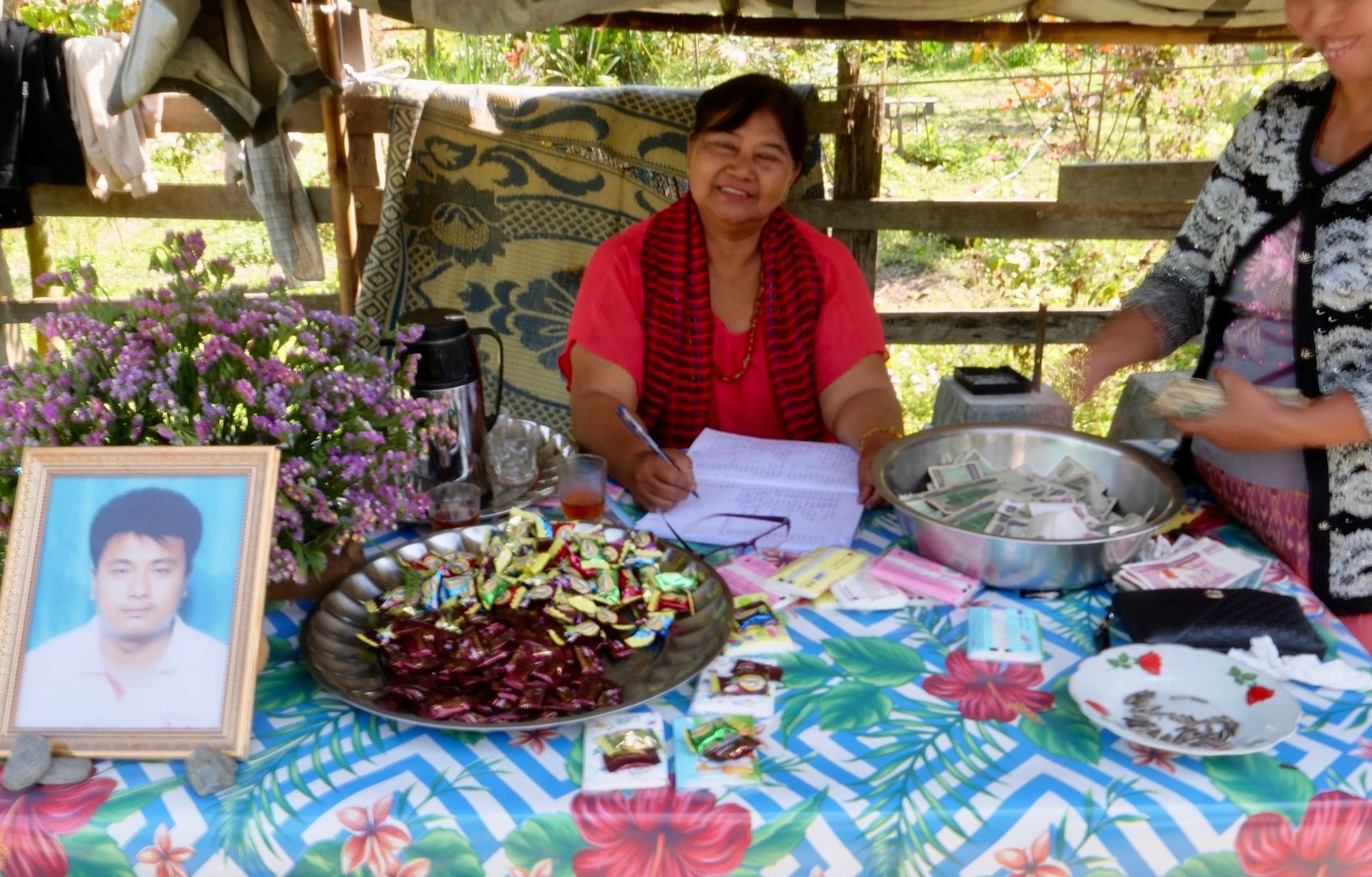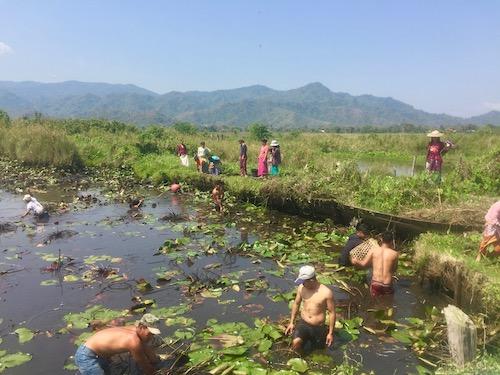
After bouncing around northern Myanmar on buses and motorbike, I recently returned to my home at Indawgyi Lake in Kachin state.
Ready to get back into the swing of things, I arranged for a Burmese lesson and some fishing with my laidback Kachin friend Sut Mai Aung Kareng.
His family home in Nam Mun village, about 20 kilometres from my place in Indawgyi City (formerly Lon Ton Village), sits at the foot of mountains to the lake’s south. It has three ponds surrounded by grasslands, and it’s one of my favourite sanctuaries.
But the morning I arrived was unusually busy, with at least 30 people doing assorted jobs and hanging out.
“We are having a big party tomorrow,” Sut Mai told me. “It’s the one-year anniversary of my brother’s death.”
Many Myanmar tend to call people “brother, sister, uncle, and aunt” regardless of whether they are relatives, but this was his actual brother, Aung Ja.
Last year a car struck him on his bicycle in Yangon. The driver was never found. I knew of Aung Ja, but not once during our hours fishing in the paddies did Sut Mai mention his brother’s death.
After bungling my way through the Burmese lesson, we went fishing again, though this time Sut Mai did not plan to use the traditional rod made of thick reeds, a string and little hooks.
Instead, some 15 people stood in one of his nearly dried out ponds. Our task was to catch the fish they launched at us from the muddy shallows. Friends and family were around the pond’s edge, trying to catch the fish.
As I flailed around, getting fish-slapped on more than one occasion, Sut Mai finally began to explain the gathering.
Although by now I have learned this is the way for lots of things, I wonder whether he would have ever told me about this celebration if I had, for example, asked him to hang out on Tuesday instead of Thursday.
This was preparation for Myitdum Kyuphi Hpawng, he said, more of a two-day party. I am unsure of the translation from Kachin language, but I gathered that it is a tradition tied to the Kachin Baptist Church.
It doesn’t have to be on a specific date, but one-year anniversaries make the most sense. The idea is to get together to “remember what the Lord has done for us” as one of the many aunts explained to me.
The mood is anything but sombre. Everybody is laughing and having a good time. The number of these celebrations is only limited by practicality and money, which is collected from guests to help fund the party.
Kachin communities are tightly knit and everybody comes together to help prepare. Without announcements or requests, they simply know. By noon, there were 50 people doing everything from catching fish to cooking to setting up tables and chairs.
No less than 300 fish must have been tossed into baskets and two of the finest pigs were slaughtered. That was hard to feel bad about when Sut Mai’s barbecue sent me into a glorious food coma for the rest of the day.
At 9am on Friday, the music was blaring amid the feasting. It was the first time I had seen Sut Mai wearing a longyi and formal shirt. Since we live in southern Kachin state, where it is much warmer than the higher altitudes, many Kachin have changed their formal wear to the lighter longyis, imprinted with Kachin designs.
As I greeted relatives, I switched from Burmese to English, which only a handful of the guests knew, not wanting to offend the Kachin, whose history with the Burmese is complicated. But really, this is me, an outsider, overthinking things.
Sometimes we are too culturally sensitive. Most people are happy just to find a common language (bonus points for knowing any regional tongue.) In Kachin, I can at least say “cheju kaba sai,” or “thank you,” but any language is fine—ultimately, people are happy you’re there.
Though the community had gathered to mark the recent death of a young man, there was no room for sadness. Perhaps it felt so because I am an outsider, and although many of the guests were friends and relatives, they weren’t that close to Aung Ja either.
Sut Mai said he felt “not happy, not sad. Just normal.” But he was not sure about his mother. Towards the end of the party, we had time to sit and talk, but our conversation was on Kachin state’s heroin epidemic and its overlaps with the opioid crisis in my native country, the US.
He often asks me what I’m going to do to help end the state’s heroin problem. It was one of the first questions he asked me two years ago. It always knocks me back. It’s massive socio-economic problem, but I like how the question is personal. My answer is the same, only now we are much closer to it: create educational and job opportunities for locals so they never start using in the first place.
With the ceremony was wrapping up, Sut Mai gave me hefty servings of pork, fish, and rice in banana leaves to take home, and, giving a final nod to the brother’s photograph, I was off.
Despite its varied cultures, funerals at Indawgyi are always cheerful scenes coloured with music. People embrace the time carved out to connect with each other. In the funerals I’ve attended, I think few have thought much about the dead. But I don’t think that’s a bad thing either. Death happens, so why not let the party go on?


